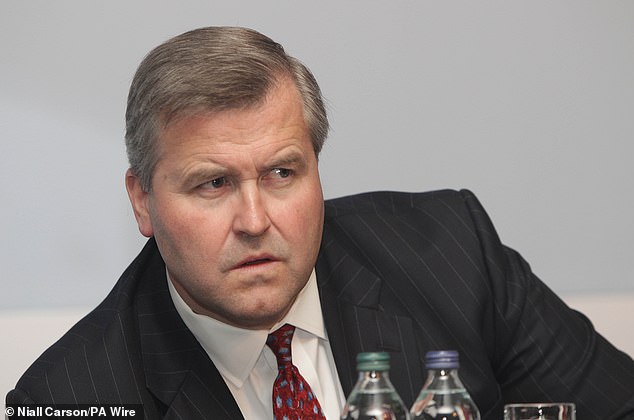[ad_1]
BP investors are restless souls at the best of times, and for good reason.
Now they are even more anxious following the surprise choice of Irishman Albert Manifold as the long-awaited chairman, a role they prayed would be filled with someone of enough stature to steer the oil giant back to being a fossil fuel company again.
The muted response in BP shares certainly bore out their concern. Analysts were equally underwhelmed at the appointment, describing the move as panic after industry heavyweights turned the top job down.
There are also worries that Manifold, unquestionably a brilliant chief executive of the Dublin-based construction materials group CRH Holdings, will be tempted to switch BP’s listing to the US to get a higher valuation, as he did with CRH.
Others say that he doesn’t have any experience of the oil and gas sector, nor the skills required to be a chairman –rather than a chief executive – as the focus needs to be on accountability and governance rather than running operations.
That’s the case against Manifold. My own hunch is that the City has been far too swift to judge his experience so negatively.

Surprise choice: Irishman Albert Manifold (pictured) has been appointed chairman of BP, sparking a muted response from investors
If Manifold’s reputation is as formidable as his background suggests, the Dublin-trained accountant with an MBA and an MBS under his belt, could prove to be just the man to turn the tide at BP.
In fact, the fast-talking, fiercely driven yet modest 62-year-old sounds rather a good egg, one who prefers to be out on the road meeting clients overseas rather than the high life like so many of his peers. Something that high-flying BP executives might want to watch out for.
Manifold is credited with turning CRH from a small cement and other base-materials supplier into a fully-fledged billion pound construction giant. He joined CRH some 26 years ago, rising to become chief executive in 2014.
Since then, Manifold totally reshaped CRH’s portfolio, buying up assets from Lafarge and Holcim during their 2015 merger, snapping up the US-based Ash Grove Cement Company and at the same time divesting of non-core businesses.
As CRH moved deeper into the US, he did the sensible thing, which was to list CRH in New York as well as keeping its FTSE 100 London listing.
That was a smart move – CRH’s share price has soared by almost 400 per cent with its market value shooting to $50billion.
While it’s true that Manifold’s skills have been in operations, it’s also evident from his achievements that he had a long-term vision and the nous to deliver that strategy.
Turning tactics into strategy is just what BP needs after the misguided ambition of former chairman Helge Lund and ex-boss Bernard Looney, and the mad dash for renewables.
Manifold takes the hot seat at a crucial time. BP has a mountain of debt, a mutinous investor in the activist US hedge fund Elliott and is in the middle of a $20billion fire-sale of non-core assets like wind farms and petrol stations. The company also had to deal with speculation of a Shell takeover, since denied.
Yet despite BP’s underperforming shares, it still has a decent dividend yield and the board is clearly working flat out to put its ‘reset’ strategy into operation.
If BP can achieve this, and if it can get oil production up to 2.5m barrels of oil a day by the end of the decade, then Barclays reckon the shares could rise as high as £5.25.
Most of us have BP shares via our pensions. So we should all hope that Manifold proves the City wrong, and that even a fraction of his magic rubs off.
Before he gets going, he must focus on restoring confidence at board level as well as with long-suffering investors.
German reboot
Who would ever have imagined that Europe’s great industrial powerhouse would have to launch a Made in Germany project to restore confidence?
But that’s what 61 of the country’s leading companies are doing with their promise to spend €631million on new investments over the next three years.
They hope to kick-start the economy, which is still looking bleak after two years of recession.
What they don’t say is how they will bring down the sky-high cost of energy which is one of their biggest problems.
Sounds familiar.
DIY INVESTING PLATFORMS

AJ Bell

AJ Bell
Easy investing and ready-made portfolios

Hargreaves Lansdown

Hargreaves Lansdown
Free fund dealing and investment ideas

interactive investor

interactive investor
Flat-fee investing from £4.99 per month

InvestEngine

InvestEngine
Account and trading fee-free ETF investing
Trading 212
Trading 212
Free share dealing and no account fee
Affiliate links: If you take out a product This is Money may earn a commission. These deals are chosen by our editorial team, as we think they are worth highlighting. This does not affect our editorial independence.
[ad_2]
This article was originally published by a www.dailymail.co.uk . Read the Original article here. .

